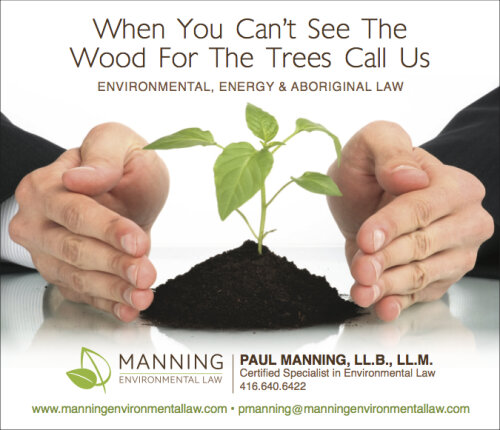Best Transportation Lawyers in Toronto
Share your needs with us, get contacted by law firms.
Free. Takes 2 min.
List of the best lawyers in Toronto, Canada
About Transportation Law in Toronto, Canada
Transportation law in Toronto, Canada, encompasses a wide scope of legal matters pertaining to transportation regulations, public and private transport lines, insurance issues, transportation infrastructures projects, among other things. It deals with laws and rules concerning road, rail, maritime, and air transportation. The Government, both at the local and national level, is responsible for regulations and safety standards that are legally mandatory in the transportation industry.
Why You May Need a Lawyer
Legal advice in transportation can be necessary in several scenarios. Individuals may need a lawyer when involved in a traffic accident and it's necessary to negotiate with insurance companies or seek compensation. Freight or transport businesses may need assistance navigating regulations, permits, or contract disputes. Also, disputes related to transportation infrastructures projects may require legal counsel, as can issues of environmental compliance or public safety. A lawyer can provide guidance on understanding local transportation laws, defending one's rights, and taking necessary legal action.
Local Laws Overview
Transportation in Toronto is governed by numerous local and federal laws. Traffic laws, as stated in the Highway Traffic Act (HTA), regulate the operation of vehicles (including bicycles) and rules of roads. Laws pertaining to public transportation are managed by the Toronto Transit Commission. As for road infrastructures, it's bound by Planning Act and Ontario's Municipal Class Environmental Assessments. Each mode of transport has specific laws dictating safety standards, insurance requirements, environmental obligations and operational rules.
Frequently Asked Questions
1. What is the local speed limit in Toronto?
Unless otherwise posted, the default speed limit in Toronto is 50 km/h on streets and 100 km/h on expressways.
2. How can I contest a traffic ticket?
One may contest a traffic ticket by choosing the option to dispute on the ticket itself and following the procedure outlined by Toronto's courts.
3. What insurance coverage is required in Toronto?
Motor vehicles must have liability insurance coverage, which includes coverage for third-party liability, statutory accident benefits, direct compensation for property damage and uninsured automobile coverage.
4. What if I have been injured in a traffic accident?
If you've been injured in an accident, it's recommended to consult with a lawyer to understand your rights and potential for compensation.
5. Can I operate a pedicab or rickshaw in Toronto?
Yes, but the operator must meet compliance standards and hold a valid license issued by the city of Toronto.
6. What are my rights and obligations as a pedestrian?
Pedestrians have the right of way on sidewalks and in most crosswalks, but are also obliged to obey traffic signals and use crosswalks where available.
7. How are bicycles treated under Toronto traffic laws?
Under the HTA, bicycles are considered vehicles and the same rights and responsibilities apply.
8. Where can I get information about public transit regulations?
Information on public transit regulations can be obtained from the Toronto Transit Commission website or offices.
9. Is there a legal limit for blood alcohol concentration while driving?
Yes, the legal limit for Blood Alcohol Concentration (BAC) in Toronto is 0.08. Driving with a BAC higher than this limit is a criminal offence.
10. What laws regulate transport of goods in Toronto?
Goods transportation in Toronto is regulated by various laws including the Commercial Vehicle Operator’s Registration (CVOR) system and Carrier Safety Rating (CSR) system.
Additional Resources
Several resources can assist with legal transportation issues in Toronto. These range from governmental bodies like the Ministry of Transportation Ontario and the Toronto Transit Commission, to non-profit groups advocating transport safety, such as Advocates for Highway and Auto Safety.
Next Steps
If you need legal assistance in transportation, the first step is to seek advice from a legal professional specializing in transportation law. They can provide insight into your situation, recommend the best action, and represent you if necessary. It's also advisable to familiarize yourself with local and federal transportation laws pertaining to your issue.
Lawzana helps you find the best lawyers and law firms in Toronto through a curated and pre-screened list of qualified legal professionals. Our platform offers rankings and detailed profiles of attorneys and law firms, allowing you to compare based on practice areas, including Transportation, experience, and client feedback.
Each profile includes a description of the firm's areas of practice, client reviews, team members and partners, year of establishment, spoken languages, office locations, contact information, social media presence, and any published articles or resources. Most firms on our platform speak English and are experienced in both local and international legal matters.
Get a quote from top-rated law firms in Toronto, Canada — quickly, securely, and without unnecessary hassle.
Disclaimer:
The information provided on this page is for general informational purposes only and does not constitute legal advice. While we strive to ensure the accuracy and relevance of the content, legal information may change over time, and interpretations of the law can vary. You should always consult with a qualified legal professional for advice specific to your situation.
We disclaim all liability for actions taken or not taken based on the content of this page. If you believe any information is incorrect or outdated, please contact us, and we will review and update it where appropriate.















